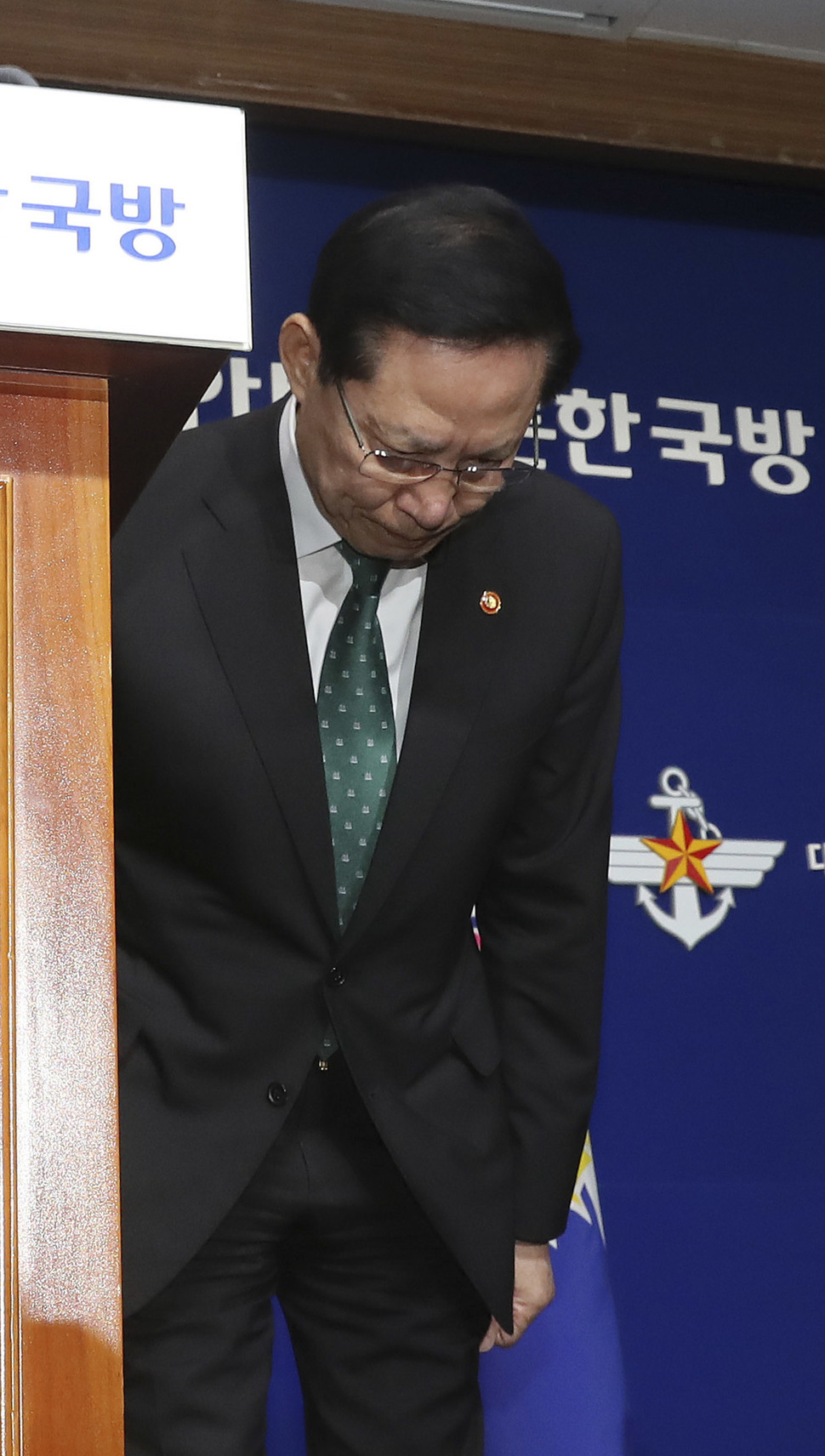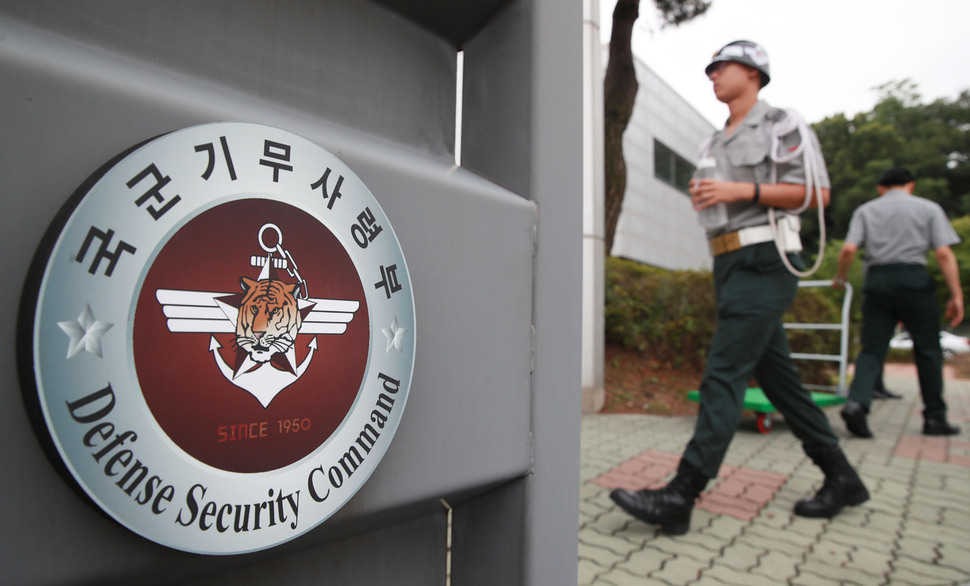 |
|
Defense Minister Song Young-moo bows on July 10 before addressing President Moon Jae-in’s orders to conduct a special investigation of the military’s Defense Security Command (DSC) and its plan to suppress candlelight demonstrators using military force. It’s been revealed that Song received a report about the DSC plans in March but did not enact any follow-up measures. (Shin So-young, staff photographer)
|
Investigators to be from outside the army
After South Korean President Moon Jae-in called for an independent military team to carry out a special investigation of the military’s Defense Security Command (DSC), attention is focusing on the composition of the team of investigators, the scope of the investigation and its future ramifications. This is the first time an independent team of investigators in the military has been put together since the South Korean military’s establishment. “In regard to the Defense Security Command’s drafting of a document considering a martial law decree during the candlelit rallies, President Moon has instructed Defense Minister Song Young-moo to set up an independent team of investigators to conduct a swift and fair investigation. The independent team is supposed to consist of military prosecutors without a background in the army or the Defense Security Command,” Blue House spokesperson Kim Eui-kyum said during the daily briefing on July 10. There are allegations that former and current army officers in the DSC may have been heavily involved in drafting the martial law decree document and in surveilling the family members of those who were lost in the sinking of the Sewol ferry in 2014. “Limiting the independent team of investigators to people who are not from the army means that the investigators will come from the navy and air force. This should forestall any rumors about impartiality, not to mention accusations about ‘protecting their own,’ during the course of the investigation,” said a source connected with a military investigative body. The military’s independent team of investigators is likely to be modeled after the typical independent investigative teams used by the public prosecutors. “During a recent investigation of allegations about ‘outside pressure’ in an investigation into corrupt hiring practices at Gangwon Land, an independent or special team of investigators was put together instead of appointing a special prosecutor. This independent team was assembled on the authority of the prosecutor general without any additional legal grounds and without any connection to instructions from the Supreme Office of the Prosecutors. The military’s independent team of investigators will also be set up on the model of the independent team of investigators used by the civil prosecutors,” said a senior official at the Blue House. The initial focus of the independent team’s investigation into the DSC’s martial law document is expected to be questions of who the document was composed by and how it came to be composed. The DSC’s martial law document, which was made public by the Centre for Military Human Rights Korea (CMHRK) on July 6, details a plan to suppress by force candlelit rallies if former president Park Geun-hye’s impeachment had been overturned by deploying 200 tanks, 550 armored vehicles, 4,800 armed troops and 1,400 commandos to downtown Seoul. The plan also authorized troops to fire on protesters if necessary. “The investigation will cover who gave orders about the disposition of troops and tanks [in the document] and about who was briefed by whom,” said a senior official at the Blue House. Along with releasing the martial law document, the CMHRK revealed that then DSC Commander Cho Hyun-chon had briefed former Defense Minister Han Min-goo and Blue House National Security Advisor Kim Kwan-jin about the document. It also alleged that the document had been composed by DSC Chief of Staff So Gang-won (a major general in the army).
 |
|
South Korean President Moon Jae-in ordered a special independent investigation of the DSC’s martial law plans on July 10. The above photo shows the entrance to the DSC in Gwacheon, Gyeonggi Province. (Yonhap News)
|







